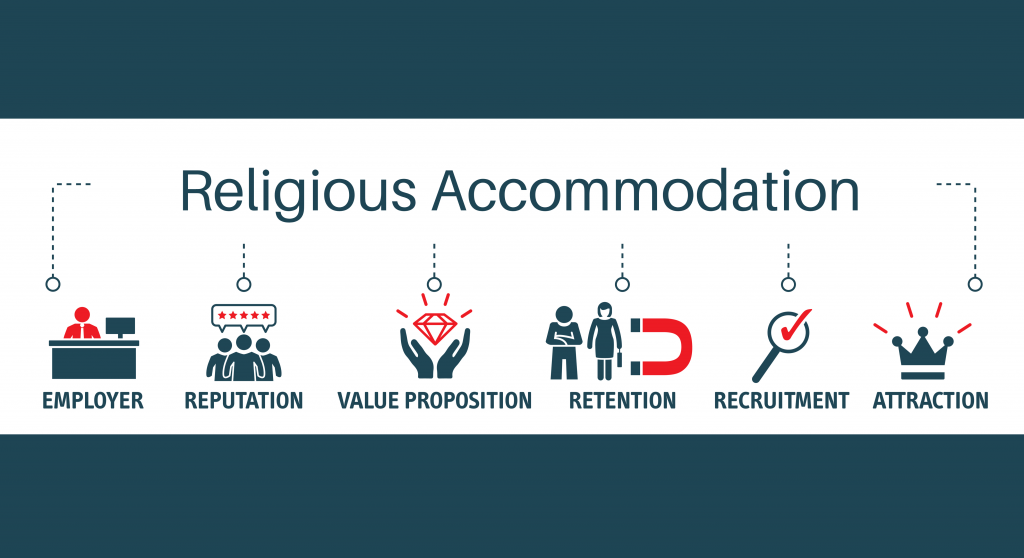by Kent Johnson, J.D., Senior Corporate Advisor, Religious Freedom & Business Foundation
Part of the blog series, Authenticity & Connection
In some companies, it seems the lawyers are there to simply tell employees what they can’t do. These lawyers rarely tell us why we shouldn’t do it, or how it might be done lawfully and ethically. This post argues that you should ask questions, especially when the issue involves perceived constraints on freedom to be yourself at work. Lest here be any mistake about what I’m saying in this post: You should listen to your lawyers! But don’t be shy about asking why or how.
Despite the recent advances of faith in the workplace in leading companies noted by the Religious Freedom and Business Foundation (see the REDI Index), many companies still say they can’t openly embrace faith in the workplace because their lawyers are against it. Employees and managers often misunderstand their lawyers’ counsel or take it out of context. Sometimes, a leader’s bias against faith will influence him or her to avoid the topic rather than investigate it. In all these cases, you should push back respectfully with questions.
Sharon Fast Gustafson, General Counsel of the US Equal Employment Opportunity Commission (EEOC) provided incisive and practical inputs on this topic at RFBF’s second Faith@Work Conference. Among other things, she pointed out that a culture that discourages religious expression is problematic. Here are just a few of her observations:
-
— “Many employees of faith feel unwelcome and fear retaliation, such as losing their job, if they express their religious beliefs, especially in ways that may contradict company policies or values.”
-
— “Title VII requires not only that an employer not discriminate and not permit harassment on the basis of religion. Title VII also requires employers to ‘reasonably accommodate’ an employee’s religious beliefs, observances and practices, unless an accommodation would create an ‘undue hardship on the conduct of the employer’s business.’ The need for an accommodation arises when an employee’s religious beliefs, observances, or practices conflict with a specific job duty or with a neutral policy.”
-
— “Title VII (of the Civil Rights Act of 1964) presumes that Americans who disagree with each other about important matters can nonetheless work side by side, and we know that this is most often not difficult. However, this need to work beside those with whom we may disagree sometimes calls on a worker to shoulder the burden of a disapproving co-worker. In return, we all get the freedom to live according to our own consciences. The alternative — allowing an employer to require consensus about anything and everything — would be unenforceable and un-American.”
As we’ve been pointing out week after week in these posts, in order for reconciliation and civility to flourish in a company culture (and in the world), people must be freed to openly live and speak at work in a manner that’s consistent with their core faith and beliefs. In the very rare cases where a person’s beliefs compel workplace behaviors that are toxic, it’s better to know of those beliefs than to be left in the dark. Fact is, the wisdom and insight that can flow from tapping into employees’ personal faith and belief is sorely needed at work. And a corporate culture that stifles faith expression conveys a message that is personally eviscerating: that employees’ core faith-related identities are irrelevant, and their expression would be dangerous.
The laws in the US and in most developed nations provide far greater leeway for companies to promote expressions of faith and belief than many realize (though there are significant exceptions in some restrictive countries). This can be done in ways that respect people of all faiths, and atheists. Done well, such encouragement can help enable deeper connection and trust among people of diverse faiths and beliefs. The Religious Freedom and Business Foundation – and a growing number of companies and others that have walked this path – can help your company navigate it.
So, what should you do if your company resists religious expression at work? Share this article with your attorneys. Ask them questions about the why and the how. Ask specifically what companies are required to do and permitted to do in order to accommodate employees’ various faiths. Ask about what constitutes unlawful “religious harassment” (and what doesn’t); how the legal framework affects atheists and people who reject traditional religious beliefs; and why so many leading companies are now embracing religion as an integral part of their formal Diversity and Inclusion programs. And give them the following links:
- — Video of Sharon Gustafson’s remarks
- — Attorney reflections on Gustafson’s remarks
- — The EEOC’s 2021 Guidance on Religious Discrimination.
A final thought: The business benefits of pursuing freedom of religious expression at work are significant. By welcoming faith and belief into the dialogue, companies are strengthening recruitment, retention, employee engagement, creativity, teamwork and ethics, to the great benefit of the workers, the teams, the companies and the world. Companies and nations that fail to embrace this freedom are arguably increasingly at a competitive disadvantage. Most importantly, standing for religious freedom is simply the right thing to do.



